Hybrid work: towards a new approach of corporate management

For a while, we thought it was just a fad or a topic for certain specialised media. Yet, since the Corona crisis, companies’ mindsets have significantly changed regarding the organisation of work. The study carried out in France in 2021 by BCG supports this view. According to the study, 78% of French talents now prefer a hybrid working model, combining remote and in-office work. Beyond the possibility to choose their place of work, employees are questioning the traditional working day with fixed hours. Indeed, 80% of the talents surveyed aspire to be allowed to choose their working hours partially or totally.
To develop hybrid work within an organisation, installing modern technological solutions is necessary, but not only! The managerial practices need to evolve as well.
Make a diagnosis of employees’ knowledge on this topic
Smart Office, hybrid work, remote work, Flex Office… First of all, it is essential to gauge your employees’ understanding of these different concepts. Lack of knowledge most often leads to misunderstanding, which in turn leads to mistrust. The first challenge is therefore to clarify these terms internally.
Thanks to this constructive dialogue, managers will receive feedback from employees and be able to reach a consensus on the rules to be put in place.
The next step is to communicate positively about this new way of working. This will make it easier for all employees to play along. Even if it may seem trivial at times, every detail must be taken into account.
For example, Flex Office requires that everyone clears and cleans their desks at the end of the day, that everyone really does change places regularly and that the whole company respects the different working areas on each floor.
Moving towards trust-based management
Teams with a hybrid work organisation cannot be managed in the same way as when everything was done face-to-face. A paradigm shift must take place. Command and control management* must give way to trust and track leadership**.
By giving more freedom to employees, managers engage in a hierarchical relationship based on trust and benevolence and no longer on verification and paradoxical injunction.
With a hybrid work organisation, the value of employees cannot be assessed on the basis of their presence in the office, but rather on their concrete results and ability to work in project mode. However, this does not mean that employees should be left to their own devices.
By setting up monitoring systems, a manager can follow the performance of each person in real time and thus accompany them in a regular and progressive follow-up. Once again, excessive supervision is to be avoided here, and care should be taken to establish a relational authority based on togetherness.
The manager, the first to set an example
For a long time, space in companies defined hierarchical levels. For example, a manager could be placed in a large individual office. When adopting Flex Office, this is no longer the case. Managers are in the middle of their teams every day and should be the first to set an example by following the rules of this new work organisation.
In addition, they must know how to alternate between a reassuring posture that guides towards common objectives and an empathetic attitude capable of taking care of individual balances. Indeed, like all work organisations, the hybrid model can have perverse effects on some employees at the beginning.
- Isolation
- Difficulty of adaptation
- Loss of proximity
- Decreased productivity
Thanks to his behavioural, cognitive and social skills (soft-skills), a manager must be able to identify and help employees in difficulty.
Indeed, managers play a key role in implementing a remote work and Smart Office policy. To support them as best as possible in these new management modes, it is essential to provide them with modern Smart Office solutions.
Would you like further information on this topic? Our teams will answer all your questions and offer you personalised advice, as well as appropriate devices, to support your transition to Smart Office. To contact us, click here!
*The dominant management system in Western companies since the Industrial Revolution. According to this organisational method, to meet its objectives and achieve economies of scale, a company must plan, organise, command, coordinate and control all the individual actions of its employees and collaborators. This gives managers a regulatory function in a system where command and information flow vertically from the top of the hierarchy downwards.
** Created as a reaction to “command and control”, this management style consists of managing teams by establishing a culture based on trust, but also a monitoring system that allows everyone to follow the progress of work as it happens. According to many marketing experts, this type of management would be more adapted to current developments in the world of work and more in line with the aspirations of new talent.


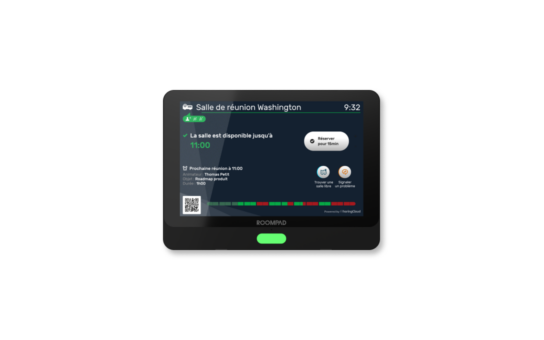 RoomPad®
RoomPad®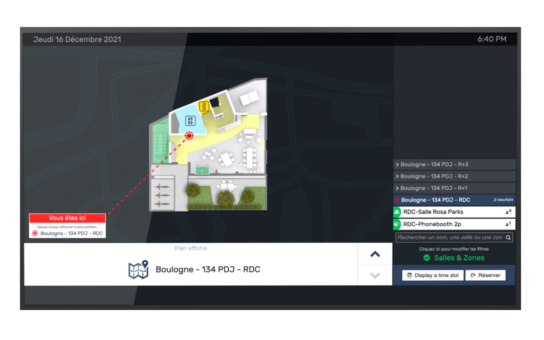 GroomPad
GroomPad GuestPad
GuestPad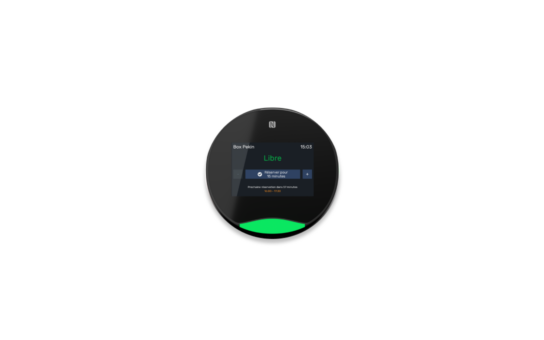 Instant Box
Instant Box Flex office and remote working 100% in-person or 100% remote, there's no need to choose anymore.
Flex office and remote working 100% in-person or 100% remote, there's no need to choose anymore. Hybrid meeting spaces and experiences A hybrid work organisation that supports collective performance
Hybrid meeting spaces and experiences A hybrid work organisation that supports collective performance Hybrid digital communication Capitalise on your employer brand and engage your employees with 360° interactive communication
Hybrid digital communication Capitalise on your employer brand and engage your employees with 360° interactive communication Welcoming and managing visitors Improve and simplify the reception experience for your employees and visitors, thanks to a smart visitor management system
Welcoming and managing visitors Improve and simplify the reception experience for your employees and visitors, thanks to a smart visitor management system Measure the use of spaces and services Anticipate your space allocation through data collection
Measure the use of spaces and services Anticipate your space allocation through data collection Dell Technology
Dell Technology Haworth
Haworth Logitech
Logitech Microsoft
Microsoft Pulse Origin
Pulse Origin Crestron
Crestron Qbic Technology
Qbic Technology SES Imagotag
SES Imagotag Surfy
Surfy Ellz
Ellz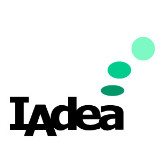 IAdea
IAdea ARD
ARD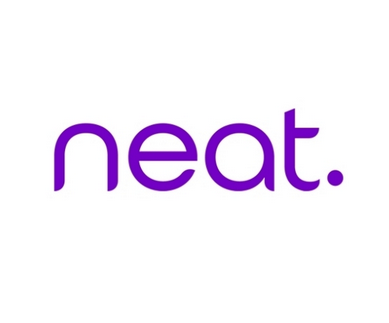 Neat
Neat en
en fr
fr de
de

